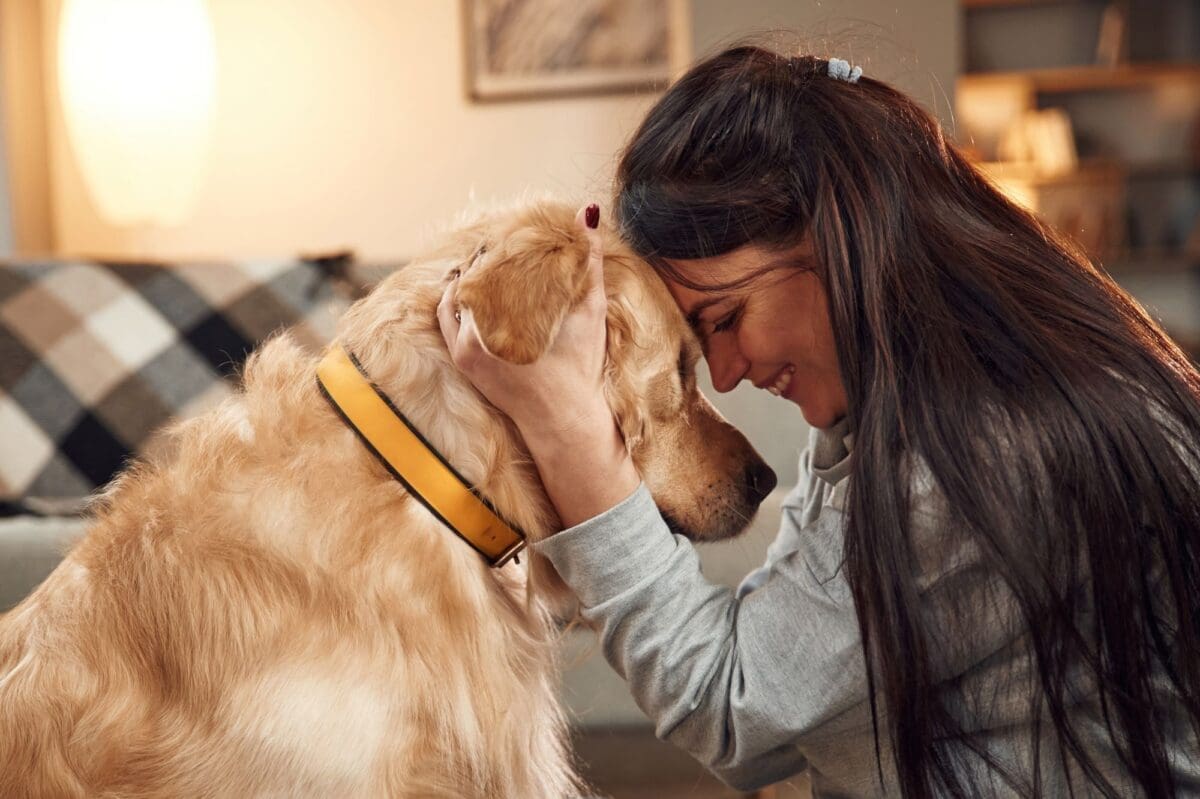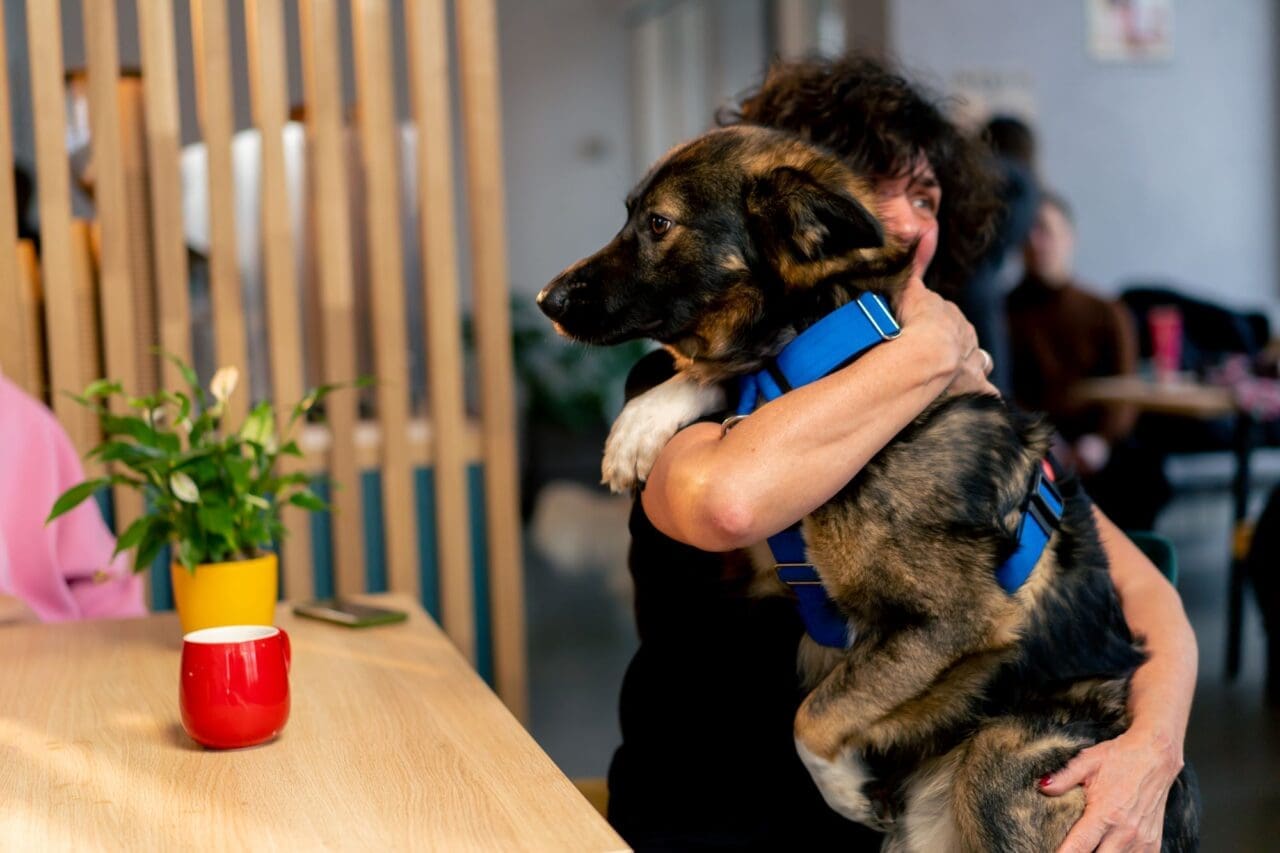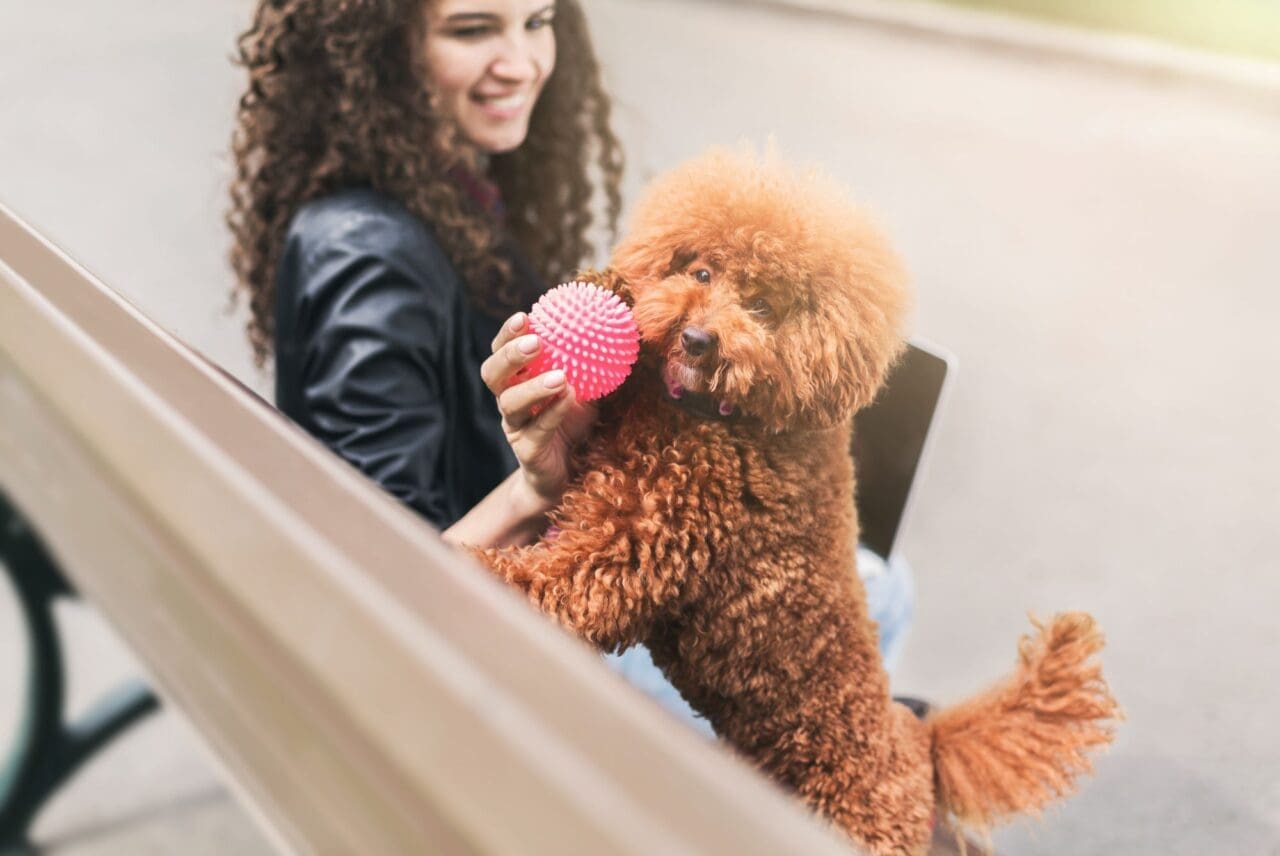7 Emotional Support Dog Breeds for Comfort and Companionship

Selecting an emotional support dog is a significant step towards managing emotional and psychological challenges. These specialized pets offer companionship and comfort, becoming a soothing presence for people coping with anxiety, depression, and various mental health conditions. Their mere presence can have a calming effect, enhancing your emotional well-being and providing a sense of stability in your life.
Many breeds have natural qualities that make them ideal as emotional support animals. For instance, certain dogs are naturally empathetic and responsive to human emotions, qualities that are essential for an emotional support dog. Their ability to provide unconditional love and support without judgment fulfills a vital role in the healing and coping process for individuals facing emotional difficulties.
In this article, we will take you through the top emotional support dogs to consider and how to narrow down your needs for an emotional support dog.
Don’t miss these related articles!
Car Travel With Pets: 10 Tips for Safety and Security
Traveling with Pets: Your Guide to Planning a Happy Trip
10 Pet Friendly Destinations: Where to Go with Your Furry Friend

What Are Your Needs?
The first step to choosing the right emotional support dog is to understand your particular needs. The right emotional support dog for you needs to align with your individual lifestyle, living situation, and emotional requirements. Consider these key factors:
Lifestyle:
- Living space: Do you live in an apartment or a house, or have limitations for large breeds?
- Activity level: Are you active and enjoy outdoor adventures, or do you prefer a more relaxed pace?
- Schedule: Can you dedicate time to training, exercise, and regular care?
Living Situation:
- Family dynamics: Do you have young children or other pets that require compatibility?
- Specific limitations: Are there any allergies or noise concerns within your household?
Emotional Requirements:
- Anxiety or depression: Do you seek calm companionship or a dog trained for specific tasks?
- Social isolation: Do you need a dog that encourages interaction or prefers quiet cuddles?
Beyond Breed:
- Individuality: Remember, dogs within each breed possess unique personalities and needs.
- Mixed breeds: Often overlooked, mixed breeds can be excellent ESAs when their temperament aligns with your needs.
- Adoption and rescue: Consider the multitude of deserving dogs in shelters awaiting loving homes.
Besides your particular needs, you also need to consider any laws and regulations in your region about having an emotional support dog. Some countries, like the US and the UK, have regulations about emotional support animals. If you are renting, some property owners will also require paperwork to allow you to have an emotional support dog.

Emotional Support Dogs vs. Service Dogs
It’s not hard to see why some people might confuse between the two, emotional support dogs and service dogs. However, there are some key differences between the two that are worth noting.
Purpose and Function
The purpose and function of emotional and support dogs rank at the top differences to note. Service dogs are specially trained to perform specific tasks that directly assist individuals with physical or sensory disabilities in daily activities, like guiding visually impaired individuals or alerting someone with epilepsy to impending seizures. These tasks are tailored to the handler’s needs, enhancing their independence and functionality.
On the other hand, emotional support dogs provide companionship and comfort to individuals experiencing emotional or psychological challenges, offering a source of solace. Unlike service dogs, they are not trained to perform specific tasks.
Training and Certification
Service dogs undergo rigorous training to acquire the skills necessary to assist individuals with disabilities actively. This training is task-specific and tailored to the handler’s requirements.
In contrast, emotional support dogs do not require the same level of specialized training. While they benefit from basic obedience training, their primary role is to provide emotional support and companionship.
Certification for service dogs often involves meeting specific legal standards, while emotional support dogs may require documentation to access certain privileges.
Access and Legal Considerations
Service dogs, owing to their specialized training and designated assistance functions, are afforded certain legal privileges, such as access to public spaces and accommodations under the Americans with Disabilities Act (ADA). Emotional support dogs, while recognized for their supportive role, do not share the same legal access rights. Their access may be subject to individual establishments’ policies and regulations.
How to Choose the Right Emotional Support Dog Breed
Besides considering your particular needs, you must also consider the dog’s temperament, size, energy level, and breed-specific traits. This will help you to align with your personal needs for comfort and companionship. Consider the below:
Dog Temperaments
This means considering the breed’s personality, disposition, or makeup. Ideal breeds exhibit a calm, gentle, and adaptable demeanor, enabling them to provide consistent emotional support across a range of lifestyles.
Breeds such as the Golden Retriever and Labrador Retriever are known for their gentle and friendly personalities, which can be ideal for emotional support. You’ll find these breeds bring a sense of calm with their sociable and laid-back nature, making them a top choice.
Breed-Specific Traits
Each dog breed comes with its own set of traits that can either be a perfect match or a less ideal fit for your emotional needs. For instance, the Poodle is highly trainable and intelligent, making it a very responsive emotional support animal. Meanwhile, the Shih Tzu is known for its affectionate and friendly disposition, ideal for those seeking a loving and comforting presence.
Breed Sizes and Energy Levels
Your living space and lifestyle should inform your decision regarding the size and energy level of your dog. Smaller breeds like the Cavalier King Charles Spaniel and Pug are cuddly and manageable for those with limited space. However, if you’re more active, a larger, more energetic breed like a Labrador Retriever could match your lifestyle, offering both companionship and motivation for outdoor activities.
Trainability and Ease of Handling
The ease with which a dog can be trained is a critical factor in its suitability as an emotional support companion. Breeds that respond well to training and commands facilitate a harmonious relationship between the dog and its owner. Additionally, a well-trained dog is more likely to exhibit behaviors that positively contribute to your emotional well-being as its owner.
Allergy-Friendly Options
If you are allergic, consider getting an emotional support dog that is hypoallergenic. Breeds with hypoallergenic qualities, such as minimal shedding and reduced dander production, can be advantageous for individuals with sensitivities. These breeds minimize the risk of triggering allergic reactions, promoting a healthier living environment for both the owner and the dog.
Top Emotional Support Dog Breeds to Consider
While individual needs and preferences ultimately dictate the perfect emotional support dog (ESD), certain breeds are ideal for emotional support companionship. Below are some of the top breeds to consider:

Labrador Retriever
The Labrador Retriever stands as an exemplary choice among emotional support dog breeds, renowned for its balanced temperament and versatility. This breed has consistently demonstrated qualities that make it highly suitable for providing emotional support to individuals across various lifestyles and cultures.
Affectionate and Friendly Nature
The Labrador Retriever is characterized by its inherently gentle and friendly demeanor. These dogs exhibit a remarkable ability to form deep emotional connections with their owners, fostering a sense of companionship and comfort. Their friendly nature extends not only to their human counterparts but also to other pets, contributing to a harmonious household environment.
Trainability and Versatility
Recognized for their exceptional intelligence and eagerness to please, Labradors are highly trainable. This trait is particularly advantageous when it comes to fulfilling the specific needs of individuals requiring emotional support. Whether it involves learning specific commands or adapting to different environments, Labradors demonstrate a remarkable capacity for training and versatility.
Golden Retriever
The Golden Retriever stands as a prominent choice among emotional support dog breeds, characterized by its patient demeanor and adaptability. Known for its reliability and gentle nature, this breed consistently exhibits qualities that make it well-suited for providing emotional support across diverse circumstances.
Gentle and Patient Demeanor
The Golden Retriever is distinguished by its naturally gentle and patient disposition. This temperament makes them exceptionally well-suited for situations requiring emotional support. Their calm demeanor extends to various environments, contributing to a sense of security and tranquility for their owners.
Excellent with Families and Children
Renowned for their compatibility with families, Golden Retrievers are particularly adept at forming strong bonds with children. Their patient and tolerant nature makes them an ideal choice for households seeking a family-friendly emotional support companion. This attribute enhances their ability to contribute positively to the emotional well-being of all family members.

Poodle
The Poodle, an intelligent and adaptable breed, also tops among the best choices for emotional support dog breeds. It’s renowned for its hypoallergenic coat, trainability, and widespread acceptance. This breed consistently demonstrates qualities that position it as a valuable emotional support companion capable of accommodating various lifestyles and preferences.
Hypoallergenic Coat
One notable feature of the Poodle is its hypoallergenic coat, making it an ideal choice for individuals with allergies. The absence of excessive shedding reduces allergens in the environment, contributing to a more comfortable living arrangement for those seeking emotional support.
Intelligent and Trainable
The Poodle is recognized for its high level of intelligence and trainability. These attributes facilitate the learning of specific commands and behaviors essential for emotional support tasks. Their ability to quickly grasp and execute instructions enhances their effectiveness in providing tailored emotional support to individuals with distinct needs, contributing to the breed’s popularity in this role.
German Shepherd
The German Shepherd stands as a formidable choice among emotional support dog breeds, distinguished by its intelligence, loyalty, and strong work ethic. Renowned for its versatility, this breed has consistently demonstrated its capability to provide steadfast emotional support to individuals seeking a dedicated and vigilant companion.
Intelligent and Loyal
The German Shepherd is characterized by its exceptional intelligence and unwavering loyalty. These qualities make them well-suited for the role of an emotional support companion. Their ability to comprehend and respond to various emotional cues enhances their effectiveness in providing support to individuals in diverse situations. The loyalty of a German Shepherd contributes to a deep bond with their owners, fostering a sense of security and trust.
Strong Work Ethic for Assistance Tasks
Beyond their emotional intelligence, German Shepherds possess a strong work ethic that makes them adept at performing various assistance tasks. This includes tasks such as fetching items, opening doors, or providing physical support, thereby extending their utility beyond emotional support. Their versatility in performing practical tasks enhances their overall value as dedicated companions.

Cavalier King Charles Spaniel
The Cavalier King Charles Spaniel is also a distinctive choice among emotional support dog breeds, owing to its small size, affectionate personality, and adaptability. This breed has gained recognition for its compatibility with various living environments and its ability to provide reliable emotional support to individuals seeking a more compact companion.
Small Size and Affectionate Personality
The Cavalier King Charles Spaniel is characterized by its diminutive size and naturally affectionate nature. These traits make them an appealing choice for individuals seeking a smaller emotional support companion. Their compact size facilitates easy accommodation in various living spaces, from apartments to larger homes, without compromising their ability to provide emotional support.
Well Suited for Apartment Living
Due to its size and adaptable nature, the Cavalier King Charles Spaniel is particularly well-suited for apartment living. Their moderate exercise requirements, combined with a generally calm demeanor, make them an excellent choice for individuals residing in urban environments where space may be limited. This adaptability contributes to their appeal as versatile emotional support dogs.
Pug
Playful and loving, Pugs are known for their calm demeanor and gentle nature. Their compact size makes them suitable for apartment living, and their moderate energy needs require only short walks and playtime. However, their brachycephalic (short-nosed) skull requires specific care regarding breathing and overheating.
Compact Size and Adaptability
The Pug’s compact size makes it a practical choice for individuals living in various environments, including apartments or smaller homes. Despite their diminutive stature, Pugs possess a robust and adaptable nature, allowing them to integrate seamlessly into different lifestyles and living spaces. This adaptability enhances their appeal as emotional support companions for a wide range of individuals.
Affectionate Nature
Renowned for their affectionate demeanor, Pugs form strong bonds with their owners, providing a source of comfort and companionship. This inherent affectionate nature contributes to their effectiveness as emotional support dogs, offering a steady presence and unwavering loyalty to those seeking solace.
Compatibility with Different Activity Levels
Pugs are well-suited for individuals with varying activity levels. While they may not have the same energy levels as more active breeds, their adaptable nature allows them to adjust to the preferences and pace of their owners. This compatibility makes them an accessible choice for individuals with different lifestyle demands.
Shih Tzu
The Shih Tzu is well known for its adaptability, affectionate nature, and suitability for individuals with varying activity levels. This breed consistently exhibits qualities that position it as a reliable emotional support companion, capable of fostering a sense of comfort and companionship.
Adaptable and Affectionate
The Shih Tzu is characterized by its adaptability to different living environments and its inherently affectionate nature. These qualities make them well-suited for providing emotional support in various settings. Their adaptability extends to different lifestyles and living arrangements, contributing to their appeal as versatile emotional support companions.
Ideal for Individuals with Different Activity Levels
Shih Tzus are well-matched to individuals with diverse activity levels. Whether in a more active household or one with a quieter pace, the Shih Tzu’s adaptable nature allows it to seamlessly integrate into different routines. This flexibility ensures that individuals with varying energy levels can find a suitable emotional support companion in the Shih Tzu.

Essential Care for Emotional Support Dogs
Providing essential care for your emotional support dog ensures they can offer the best companionship and comfort. This involves dedicated efforts in training, health maintenance, and meeting their physical needs.
Proper Training and Socialization
To integrate seamlessly into your life as an effective emotional support companion, your dog requires proper training and socialization. This goes beyond basic obedience; it involves teaching your dog to perform specific tasks that alleviate your mental health issues. Socialization plays a vital role in this, as it helps your dog remain calm and comforting in various environments. You could consider involving a professional to help fine-tune these aspects.
Health, Exercise, and Grooming Needs
Your dog’s physical well-being directly impacts their ability to provide emotional support. Regular exercise is crucial to maintain their mental and physical health. Each breed has different exercise needs; for example, a Labrador Retriever generally requires more exercise than a smaller breed like a Chihuahua.
Grooming is also a key component of their care. Not only does it keep them looking their best, but it also prevents health issues that could hinder their role as support animals. Simple actions like brushing and bathing when necessary, checking ears, trimming nails, and dental care are essential grooming tasks. Remember, while not service or therapy dogs, emotional support dogs still play a unique role in your well-being. Your attentive care will help them succeed in their role.

